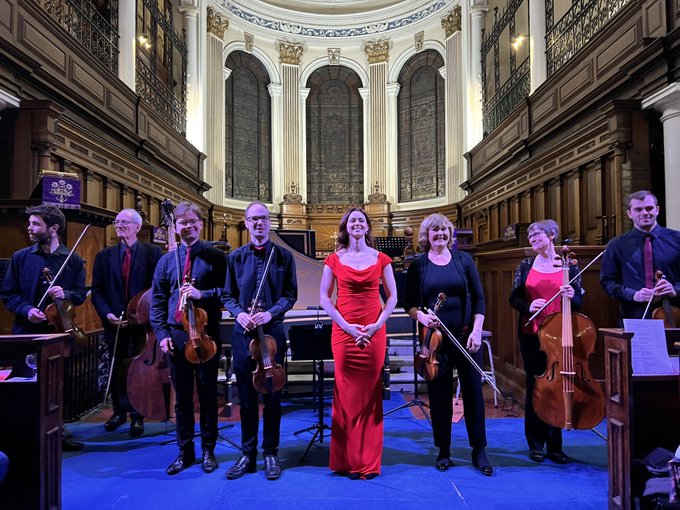Everyone’s been to a throwback concert with a parent. But how about trading that 1950s Elvis impersonator for a 1750s “pop band”?
In 1867, a Manchester journalist published a transcript of a (now lost) record book. It contains information on the first ever public concert series known to have been performed in Manchester. And now it’s coming back to life.
I attended ‘Musick in Manchester 1744/45’ at St Ann’s Church, nestled neatly in the centre of the city. It was the eighth in a series of 16 concerts by Manchester Baroque, recreating the exact performance as it would have been in 1745.
Dr Pauline Nobes is the Artistic Director for Manchester Baroque. Since its launch in 2019, it has been performing historical music on period instruments, having even streamed one concert online during lockdown.
The performers use historical instruments to replicate how the concert occurred here in Manchester, nearly three centuries ago. This includes the harpsichord, recorder, viola, violone and flute.
However, like me, the only time you may have come across baroque music is in an episode of Horrible Histories. So what exactly is baroque music?
Baroque is described as the dominant style of Western classical music composed between 1600 to 1750. Jessica Bowles, one of the volunteers for Manchester Baroque, described it as “the pop music of its day” – “soft and gentle” but also “catchy tunes”.
So, who are the people attending a 280-year-old pop concert in 2024?
I spoke to one of the youngest people I could identify in the sold-out crowd. George, 20, is a University of Manchester music student who plays the organ. He initially came across baroque music by “suggestions on YouTube”. He said this is not his first baroque concert, having been to a few before. In fact, he has played the harpsichord in baroque performances at university.
Josh, 29, told me he doesn’t “know much about classical or baroque”, but liked the setting, and the use of traditional instruments. Like myself, it was his first time at a baroque event.
Nesta and Jill are self-professed “big fans of early music”. They said they “play this era of music together” as amateurs, also commenting on the “varied” nature of the music.
Tom and Elaine, both 77, are husband and wife who both studied music, and have attended before. Tom said that “part of the fascination for me is going back into the past”, adding that “coming back into the context reminds you of the baroque era”.
Unfortunately, the original venue of the concerts in the Hanging Ditch area of Manchester was destroyed long ago. Nevertheless, it was a new, but certainly enjoyable experience to listen to a historical concert that is nearly as old as the church I experienced it in.
My Saturday-night experience felt like that of an 18th-century teenager attending their first gig. I wholeheartedly enjoyed my evening, and can now confidently say that the harpsichord is a real instrument, and not just an effect on a keyboard.
Manchester Baroque’s next concert is J.S. Bach’s St Matthew’s Passion, on Good Friday, 29 March, in Manchester Cathedral.
Feature Image: Manchester Baroque at the concert. Image by Mike Emmerich




